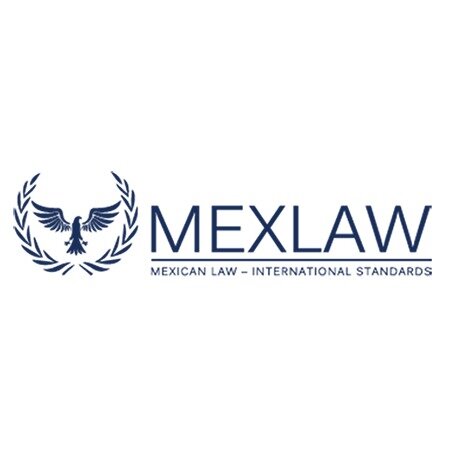Best Real Estate Lawyers in Mexico
Share your needs with us, get contacted by law firms.
Free. Takes 2 min.
Free Guide to Hiring a Real Estate Lawyer
Or refine your search by selecting a city:
List of the best lawyers in Mexico
Mexico Real Estate Legal Articles
Browse our 1 legal article about Real Estate in Mexico written by expert lawyers.
- Buying Property in Mexico: Foreigner Legal Checklist
- Foreigners can own real estate in Mexico, but coastal and border properties usually require a bank trust (fideicomiso) or a Mexican company under the Foreign Investment Law. Every valid transfer of real estate must be formalized before a Notario Público and registered at the local Public Registry of Property to... Read more →
About Real Estate Law in Mexico
Real Estate in Mexico is regulated at both the federal and state levels. The Mexican Constitution, Civil Code, and various real estate laws govern the purchase, sale, and lease of property. It's important to understand these laws to ensure a smooth real estate transaction in Mexico.
Why You May Need a Lawyer
You may need a lawyer for various reasons in the field of Real Estate in Mexico. Some common situations where legal assistance is necessary include property disputes, contract reviews, title searches, tax implications, and zoning regulations. A lawyer can provide guidance and representation to protect your interests in real estate transactions.
Local Laws Overview
Key aspects of local laws that are particularly relevant to Real Estate in Mexico include property ownership by foreigners, land use regulations, ejido land (communally-owned land), and the role of a Notary Public in real estate transactions. Understanding these laws will help you navigate the real estate market in Mexico effectively.
Frequently Asked Questions
1. Can foreigners own property in Mexico?
Yes, foreigners can own property in Mexico, but there are restrictions on owning property within the restricted zone (50 kilometers from the coast or 100 kilometers from the border).
2. What is ejido land?
Ejido land is communally-owned land in Mexico, typically held by indigenous communities. It has specific rules governing its use and transfer.
3. What is the role of a Notary Public in real estate transactions?
A Notary Public in Mexico plays a crucial role in real estate transactions by verifying the legal status of the property, drafting and registering deeds, and ensuring the transaction complies with all legal requirements.
4. What taxes are involved in real estate transactions in Mexico?
There are various taxes involved in real estate transactions in Mexico, including acquisition tax, property tax, capital gains tax, and notary fees.
5. How can I verify the legal status of a property in Mexico?
You can verify the legal status of a property by conducting a title search at the Public Registry of Property. This will help you ensure that the property has a clear title and is free of any liens or encumbrances.
6. What are the steps involved in buying property in Mexico?
The steps involved in buying property in Mexico include signing a purchase agreement, conducting due diligence, obtaining financing (if needed), closing the transaction before a Notary Public, and registering the property with the Public Registry of Property.
7. What is a fideicomiso (bank trust) and when is it required?
A fideicomiso is a bank trust that allows foreigners to own property in the restricted zone in Mexico. It is required for foreign ownership of residential property in these areas.
8. Can I rent out my property in Mexico as a foreigner?
Yes, foreigners can rent out their property in Mexico. However, it's important to comply with local regulations and tax laws related to rental income.
9. What are the common pitfalls to avoid in real estate transactions in Mexico?
Common pitfalls to avoid in real estate transactions in Mexico include not conducting proper due diligence, not working with a qualified lawyer or real estate agent, and not understanding local laws and regulations.
10. How can I resolve a property dispute in Mexico?
If you're involved in a property dispute in Mexico, it's advisable to seek legal advice from a qualified lawyer who can help you navigate the legal system, negotiate with the other party, and represent your interests in court if necessary.
Additional Resources
For further information and assistance with Real Estate in Mexico, you can contact the Mexican Association of Real Estate Professionals (AMPI), the National Chamber of the Notarial Profession (CNPN), and the National Registry of Foreign Investments (RNIE).
Next Steps
If you require legal assistance in Real Estate in Mexico, reach out to a qualified lawyer who specializes in real estate law. They can provide you with guidance, support, and representation to ensure a successful real estate transaction in Mexico.
Lawzana helps you find the best lawyers and law firms in Mexico through a curated and pre-screened list of qualified legal professionals. Our platform offers rankings and detailed profiles of attorneys and law firms, allowing you to compare based on practice areas, including Real Estate, experience, and client feedback.
Each profile includes a description of the firm's areas of practice, client reviews, team members and partners, year of establishment, spoken languages, office locations, contact information, social media presence, and any published articles or resources. Most firms on our platform speak English and are experienced in both local and international legal matters.
Get a quote from top-rated law firms in Mexico — quickly, securely, and without unnecessary hassle.
Disclaimer:
The information provided on this page is for general informational purposes only and does not constitute legal advice. While we strive to ensure the accuracy and relevance of the content, legal information may change over time, and interpretations of the law can vary. You should always consult with a qualified legal professional for advice specific to your situation.
We disclaim all liability for actions taken or not taken based on the content of this page. If you believe any information is incorrect or outdated, please contact us, and we will review and update it where appropriate.
Browse real estate law firms by service in Mexico
Mexico Attorneys in related practice areas.
Browse real estate law firms by city in Mexico
Refine your search by selecting a city.

















